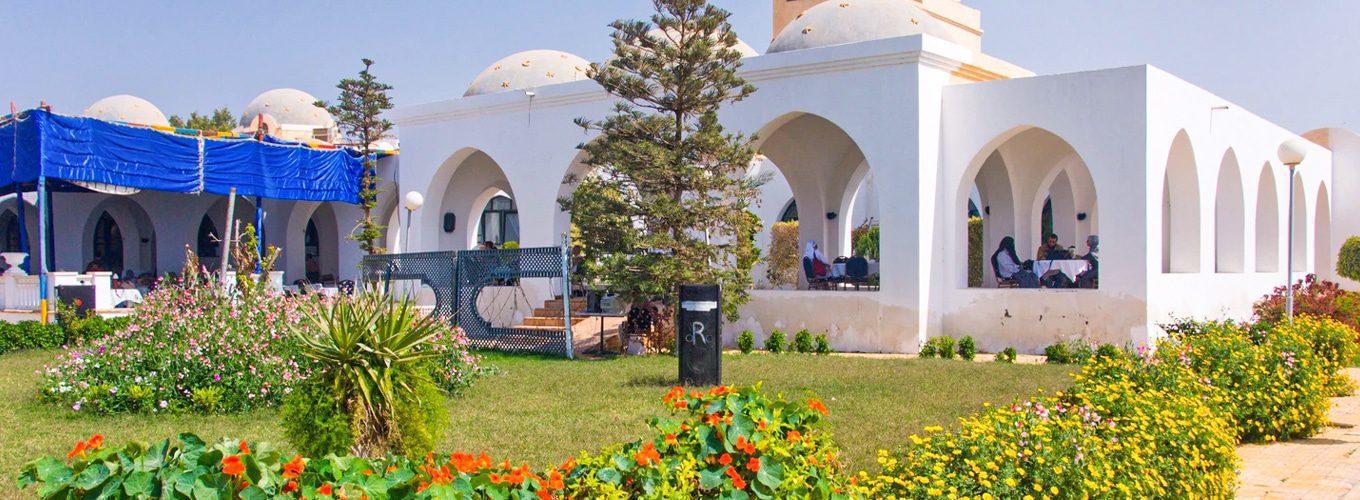As an avid traveler, I always seek unique destinations that blend natural beauty, cultural significance, and a sense of serenity. My recent visit to Tunis Village in Fayoum, Egypt, ticked all those boxes and more. Located just 100 km southwest of Cairo, Tunis Village is an idyllic retreat that offers a glimpse into the rich history and culture of Egypt while also providing an escape from the hustle and bustle of city life. In this blog post, I will share my experience visiting Tunis Village in Fayoum and why it should be on your travel list.

Introduction to Tunis Village in Fayoum
Tunis Village is a small settlement in the heart of the Fayoum Oasis, known for its stunning natural beauty and rich cultural heritage. The village is home to a vibrant community of artists, craftsmen, and farmers who have preserved the region’s traditional way of life and architecture. The town is surrounded by lush green fields, palm trees, and olive groves that contrast with the arid desert landscape surrounding it.
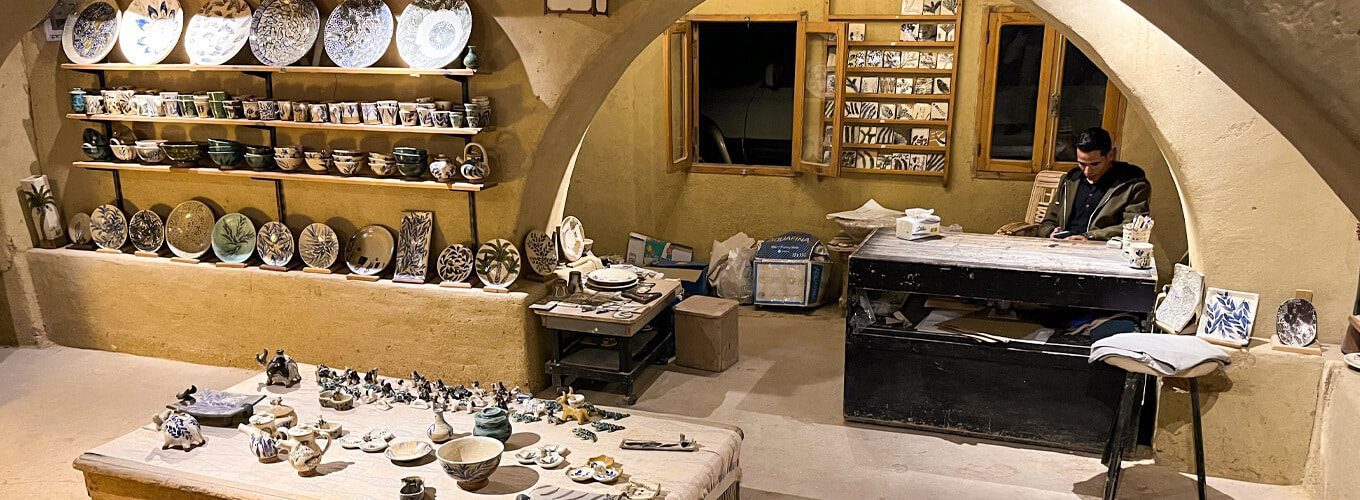
History of Tunis Village
Tunis Village’s rich history dates back to the Greco-Roman period when the area was known as Crocodilopolis. The village was founded in the 12th century by Berber farmers attracted to the region’s fertile land and abundant water sources. Over the centuries, the town grew in size and importance, becoming a center for agriculture, trade, and culture. Today, the city is a living museum of traditional Egyptian architecture, with mud-brick houses, narrow alleys, and ornate wooden doors and windows.
Location and how to get there
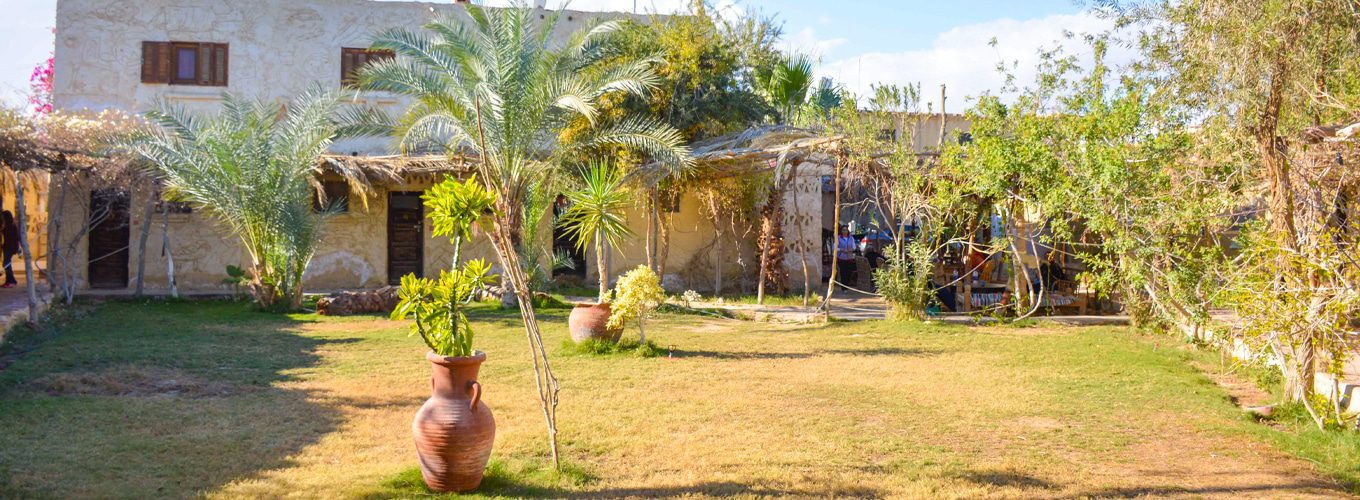
Tunis Village is located in the Fayoum Oasis, about 100 km southwest of Cairo. The easiest way to get there is by car or taxi, which takes about 2 hours from Cairo. Alternatively, you can take a microbus from the Turgoman bus station in Cairo, which takes around 20 EGP and about 3 hours. Once you reach Fayoum city, you can hire a taxi or a local guide to take you to Tunis Village, about 25 km away.
Accommodation options in Tunis Village
Tunis Village offers a range of accommodation options, from traditional mud-brick houses to modern eco-lodges. I stayed at the Tunis Eco-lodge, a beautiful and sustainable guesthouse that blends traditional architecture with modern amenities. The lodge has ten rooms, each with its private terrace overlooking the gardens and the surrounding mountains. The rooms are spacious and comfortable, with traditional furnishings and modern bathrooms. The lodge also has a restaurant that serves delicious Egyptian and international cuisine using locally sourced ingredients.
Activities in and around Tunis Village
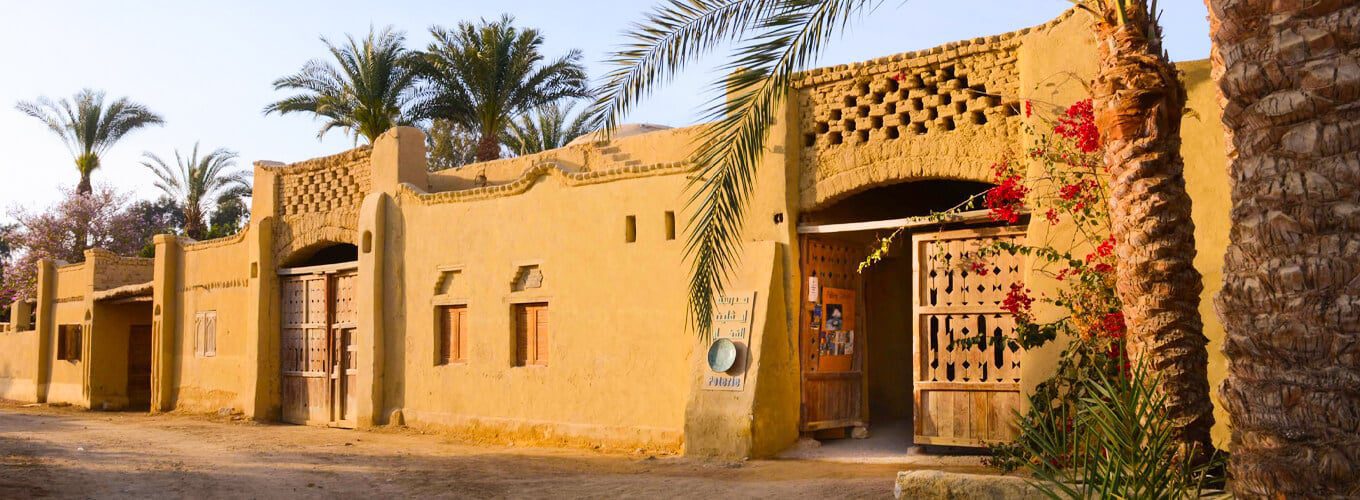
Tunis Village and the surrounding area offer a variety of activities for visitors, ranging from cultural tours to outdoor adventures. Some of the popular activities include:
- Guided tours of Tunis Village
A guided tour of Tunis Village is a great way to explore the history and culture of the region. You can visit the local museum, which showcases traditional crafts and artifacts, and learn about the daily life of the villagers. You can also visit the regional pottery workshop, where you can see the artisans at work and even try your hand at making your pottery.
- Hiking and trekking in the mountains
The mountains around Tunis Village offer some of the best hiking and trekking opportunities in Egypt. You can hike to the top of Gebel Qatrani, which offers stunning views of the Fayoum Oasis and the surrounding desert. You can also trek to the nearby Wadi El Rayan, a beautiful natural reserve with waterfalls, lakes, and abundant wildlife.
- Birdwatching in the Fayoum Oasis
The Fayoum Oasis is a haven for birdwatchers, with over 200 species of birds found in the region. You can take a guided tour of the Wadi El Rayan reserve, home to rare species such as the marbled teal and the white-eyed gull. You can also visit the Qarun Lake, a designated Ramsar site and an important stopover for migratory birds.
Food and dining options in Tunis Village
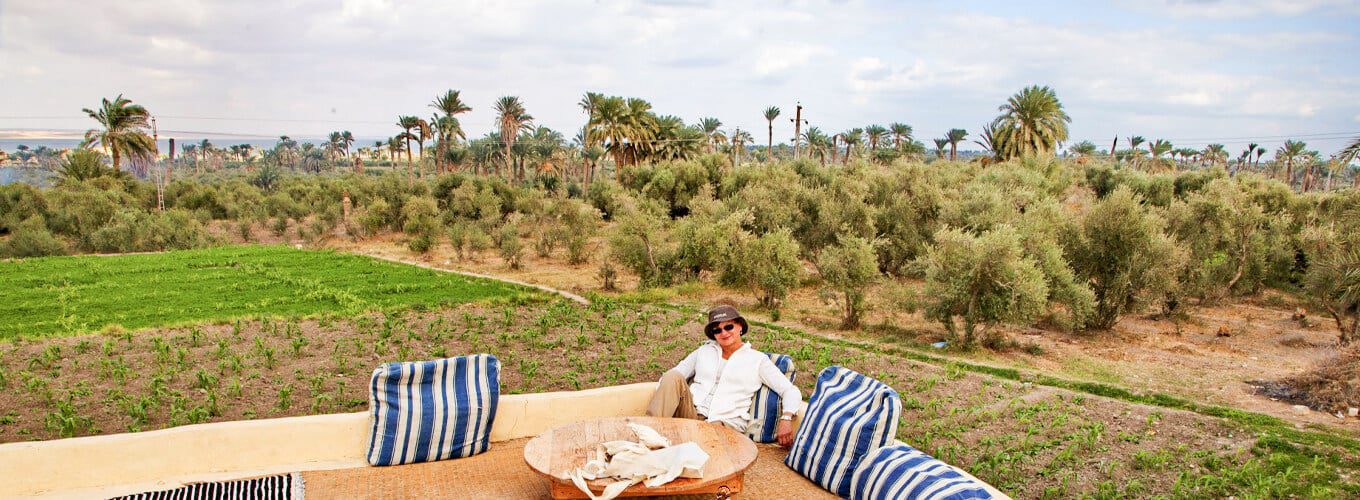
Tunis Village and the surrounding area offer a range of dining options, from traditional Egyptian cuisine to international fare. Some of the popular dishes include:
- Fava beans and falafel
Fava beans and falafel are a staple of Egyptian cuisine, and you can find them in almost every restaurant in Tunis Village. The beans are cooked with herbs and spices and served with freshly baked bread, while the falafel is made with ground fava beans and spices and served with tahini sauce.
- Grilled meat and vegetables
Grilled meat and vegetables are also popular in Tunis Village, with lamb and chicken being the most common meats. The heart is marinated with spices and grilled over an open flame, giving it a smoky and flavorful taste. The vegetables are usually examined with olive oil and herbs and served with rice or bread.
- Egyptian sweets and desserts
Egyptian sweets and desserts are a must-try when visiting Tunis Village. Some popular sweets include baklava, basbousa, and konafa, made with phyllo pastry, syrup, and nuts. You can also try the traditional Egyptian dessert umm Ali, a creamy and sweet bread pudding.
Natural attractions in Fayoum
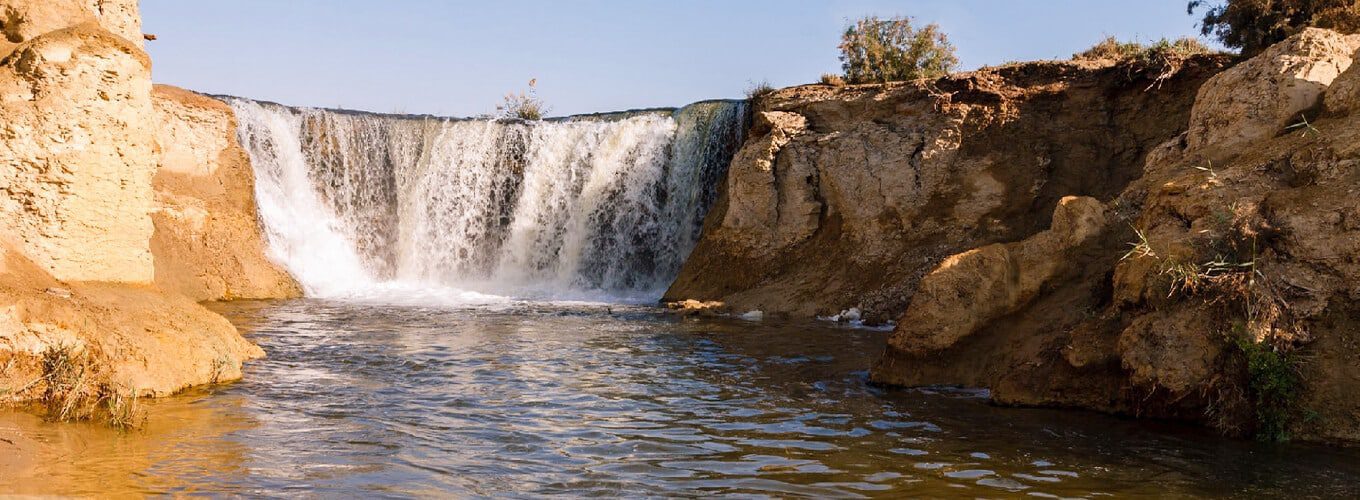
Fayoum is known for its stunning natural beauty, which includes deserts, mountains, lakes, and waterfalls. Some of the popular natural attractions in the region include:
- Wadi El Rayan
Wadi El Rayan is a beautiful natural reserve with two lakes, waterfalls, and abundant wildlife. The account is home to rare species, such as the slender-horned gazelle and the fennec fox, and is a popular destination for hiking, birdwatching, and swimming.
- Qarun Lake
Qarun Lake is the largest lake in Egypt and a designated Ramsar site, which means it is a critical wetland habitat for migratory birds. The lake is surrounded by lush vegetation and is a popular destination for fishing, boating, and birdwatching.
- Gebel Qatrani
Gebel Qatrani is a mountain range that offers stunning views of the Fayoum Oasis and the surrounding desert. The mountain is also home to a fossil site that dates back to the Eocene period and is a popular destination for paleontologists and geologists.
Cultural attractions in Fayoum
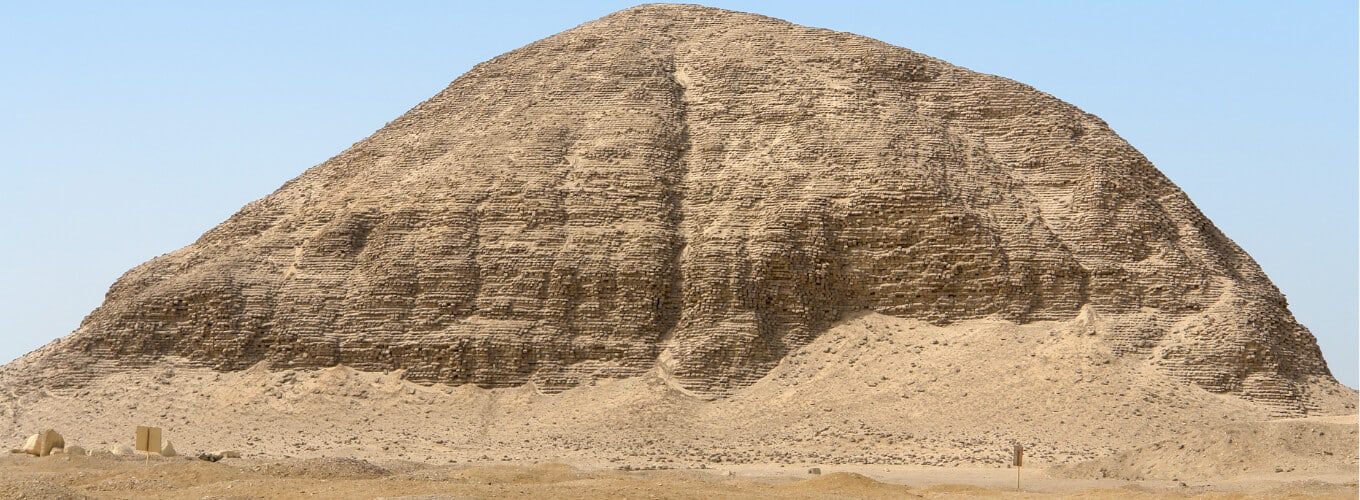
Fayoum has a rich cultural heritage that dates back to ancient times, with many sites and monuments that showcase the region’s history and culture. Some of the popular cultural attractions in the area include:
- Karanis
Karanis is an ancient Greco-Roman city from the 3rd century BC. The town was an important center for agriculture and trade and is now a well-preserved archaeological site that offers a glimpse into the daily life of the ancient Egyptians.
- Hawara
Hawara is an ancient Egyptian pyramid complex that dates back to the 12th dynasty. The complex includes the pyramid of Amenemhat III, one of the best-preserved pyramids in Egypt, as well as a temple and a series of tombs.
- Qasr Qarun
Qasr Qarun is an ancient Roman fortress from the 3rd century AD. The fort was built to protect the region from invading tribes and is now a well-preserved site that offers a glimpse into the military architecture of the Romans.

Best time to visit Tunis Village and Fayoum
The best time to visit Tunis Village and Fayoum is between October and April when the weather is mild and pleasant. During this time, the temperature ranges from 15°C to 25°C, with little to no rainfall. The summer months (May to September) can be scorching, with temperatures reaching 40°C, making it challenging to explore the region.
Tips for visiting Tunis Village and Fayoum
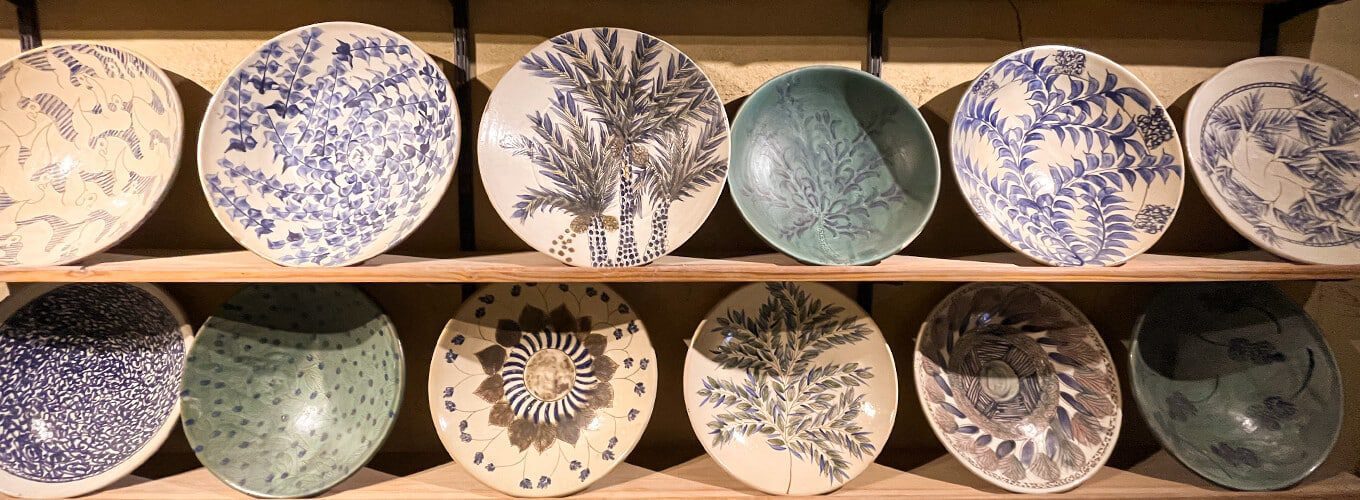
Here are some tips to keep in mind when visiting Tunis Village and Fayoum:
- Dress appropriately
Fayoum is a conservative region, so it is essential to dress modestly when visiting. Women should cover their shoulders and knees, and men should avoid wearing shorts.
- Hire a local guide
Hiring a local guide is a great way to explore the region and learn about its history and culture. Guides can also help you navigate the narrow alleys and find hidden gems you might otherwise miss.
- Respect the local customs.
The villagers in Tunis Village are friendly and welcoming, but respecting their customs and traditions is essential. Avoid taking photos of people without their permission, and ask before entering someone’s home or workshop.
Conclusion – Why Tunis Village in Fayoum should be on your travel list
Tunis Village in Fayoum is a hidden gem that offers a unique blend of natural beauty, cultural significance, and a sense of serenity. The village and the surrounding region have something for everyone, whether you’re interested in history, culture, or outdoor adventures. I highly recommend adding Tunis Village to your travel list and experiencing the beauty and tranquility of this hidden oasis.
Start planning your trip to Tunis Village in Fayoum today, and discover the beauty and serenity of this hidden oasis in Egypt.
